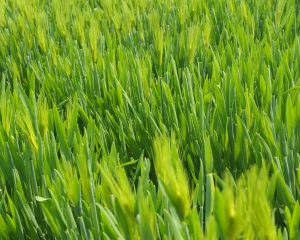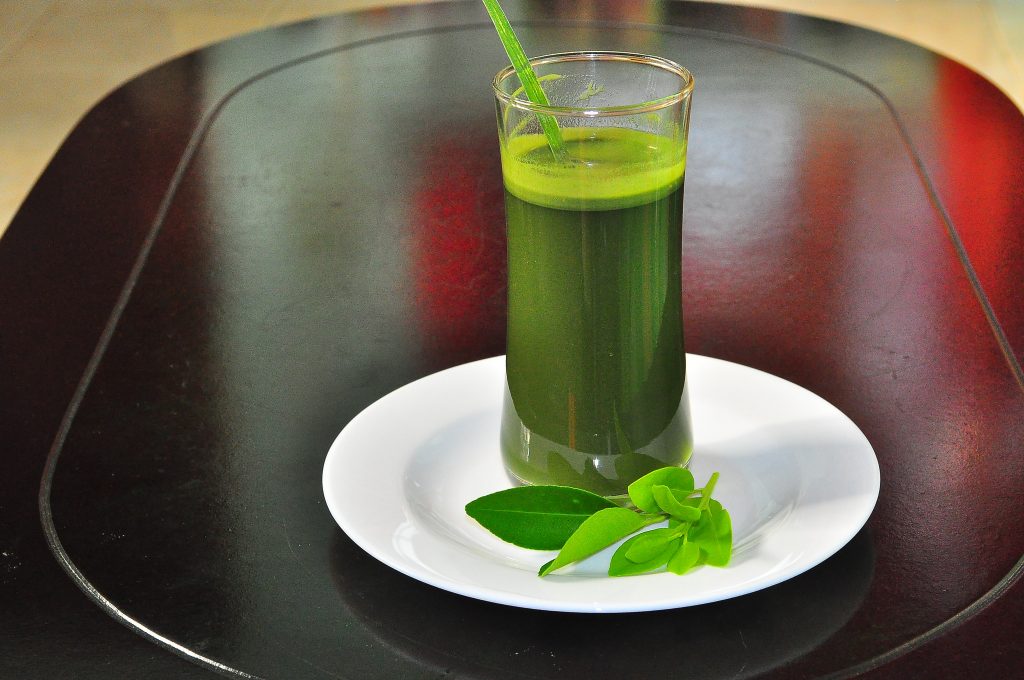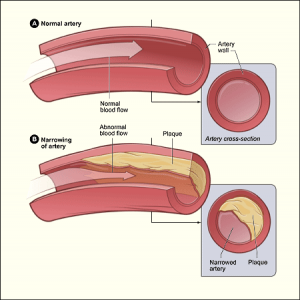Nutritious barley grass may improve overall health and well-being.

Barley grass is a popular green food supplement. It is believed to support general health through a variety of biological mechanisms, such as:
- Antioxidant activity. Young barley leaves are rich in antioxidants.
- Regulating blood lipids. Research has shown that barley grass can help with hyperlipidemia.
- Supplying nutrients. Barley grass is full of vitamins, minerals, and bio-active compounds.
Overview
Barley grass, also known as barley leaf, is the young stage of the barley plant (Hordeum vulgare) that is harvested prior to producing grain. Similar to other cereal grasses, the leaves of barley grass are used to make a nutritious health drink, or processed into a powdered greens supplement.
Barley grass is a rich source of calcium, copper, iron, magnesium, potassium, zinc, vitamins, enzymes, amino acids, and phytochemicals such as chlorophyll and beta-carotene. Barley grass is typically sold by itself or combined with wheat grass, alfalfa, and other greens ingredients.
As with most greens supplements, barley grass is said support overall health and well-being. Although these claims have not been directly examined by researchers, there is some evidence of the beneficial bio-activities of barley grass.

How Barley Grass Might Improve Your Health
Barley grass contains a wide variety of nutrients and biologically-active compounds that can benefit our health, which makes it difficult to explain exactly how it works. However, researchers have suggested several possibilities:
Antioxidant activity
Barley grass contains a wide variety of antioxidants – compounds that help scavenge free radicals.1 Antioxidants are one of the most popular dietary supplements because oxidative stress caused by free radicals has been implicated in everything from neurodegenerative conditions to diabetes.
Regulating blood lipids

For example, one specific ingredient of barley grass called beta-sitosterol is believed to inhibit intestinal absorption of cholesterol and speeding up its breakdown.2
Potential regulation of acid-base balance
One popular theory for how greens supplements such as barley grass might be beneficial is by helping to “alkalize” the body by improving the acid-base balance (also know as pH). Some early research suggests that eating too many acidic foods such as grains and protein may offset this balance and increase your chances of developing obesity, cardiovascular conditions, and other maladies.
By contrast, plant foods and by extension greens supplements are considered alkaline foods.3 However, this mechanism of action remains disputed.
Barley Grass Uses & Potential Benefits
Barley grass juice powder is a popular health supplement, especially recommended for people who have low vegetable & fruit intake. Like other green food supplements, barley grass is proposed to have a wide range of health benefits that add up to improved health and well-being, including detoxification, enhanced immunity and energy.
These uses have not been directly tested, but there is evidence that barley grass can improve health through its antioxidant and lipid-reducing activity, and provide specific benefits such as fighting depression and atherosclerosis – a condition characterized by plaque buildup in arteries.
Research
Animal Research
Preliminary animal research confirms that barley grass supplementation has multiple health benefits.
Barley grass leaf appears to have an antidepressant effect
This study examined the antidepressant potential of barley grass. Mice underwent a forced swim test – a common animal model of depression – an hour after being given barley leaf (400 or 1000 mg/kg body weight) or imipramine, a common antidepressant (100 mg/kg). All three treatments were found to improve test performance and depression/stress-related brain chemistry.
- The researchers concluded that “Oral administration of young green barley leaf is able to produce an antidepressant-like effect in the forced swimming test.“4
Barley grass leaf may help with atherosclerosis
For this randomized study, researchers examined the efficacy of barley leaf powder (BL) in atherosclerosis. Twenty-four male rabbits were given one of four diets: regular; control (high-fat) diet, high-fat plus probucol (a cholesterol-lowering drug), and high-fat plus BL. Compared to the control diet, both the BL and probucol groups saw a drop in blood cholesterol, triacylglycerol, and other markets of atherosclerosis.
- The researchers concluded that “the antioxidant and hypolipidemic effects of BL could be useful in the prevention of cardiovascular disease in which atherosclerosis is important.“5
Human Research
Although there has been a good deal of research done on barley grass in Japan, most of the results remain unpublished.
Barley grass extract (15 g) may improve atherosclerosis and act as an antioxidant
This study examined the use of barley leaf powder (BL) in diabetes. Thirty-six people with type 2 diabetes were given 15 g BL, 200 mg vitamin C and 200 mg vitamin C, or both (BL + CE) daily for 4 weeks. The study found that all treatments had a notable antioxidant effect, and also improved LDL-vitamin E content, and inhibited LDL oxidation – two measures of atherosclerosis.
- The researchers concluded that “supplementation with BL may help to scavenge oxygen free radicals, save the LDL-vitamin E content, and inhibit LDL oxidation…which may protect against vascular diseases in type 2 diabetic patients.“6
Barley Grass Greens Dosage
- The only known barley grass extract dose used in human trials is 15 g daily
- Single-ingredient barley grass juice powder products suggest doses of 2.5 – 8 g daily
- Multi-ingredient greens formulas typically mix barley with wheat grass and alfalfa
- Barley grass powder can be mixed with water, but given its strong taste most people prefer to use juice or smoothies
Supplements in Review Says
- Barley grass juice powder 2.5 – 8 g daily.
Barley grass seems to provide a variety of health benefits. While we’d like to see more research before saying anything conclusive, there is evidence that barley grass can improve your health through antioxidant activity and other mechanisms.
Since research is lacking, it’s best to stick to supplement-recommended dosages. Barley grass extract products recommend mixing an average of 4 g of powder in water, juice, or a smoothie.
Leave a Reply